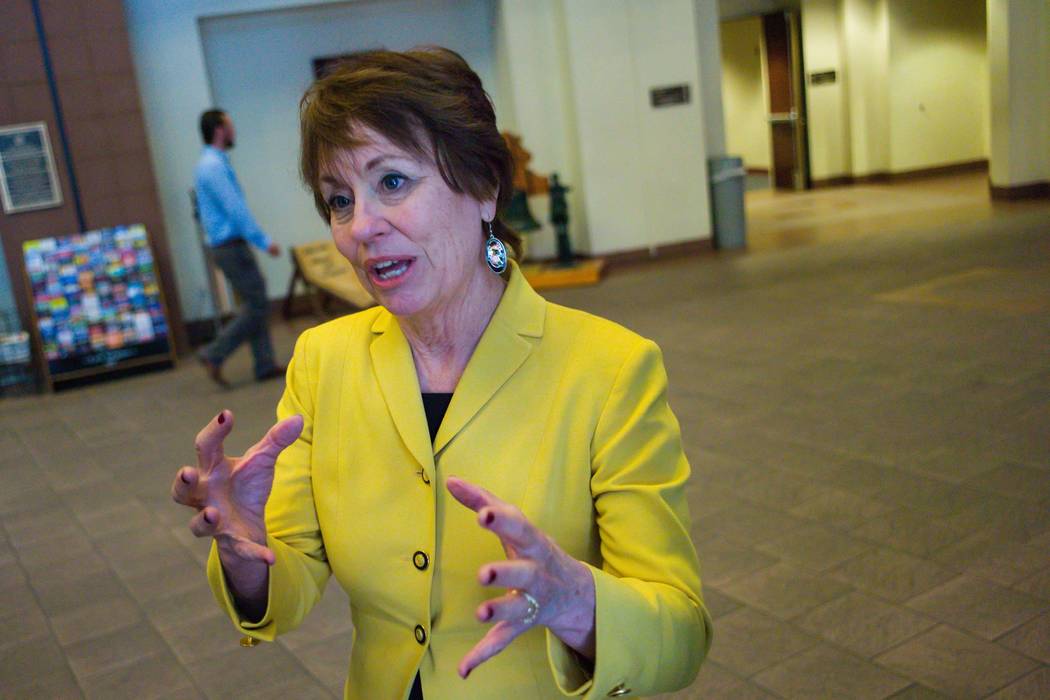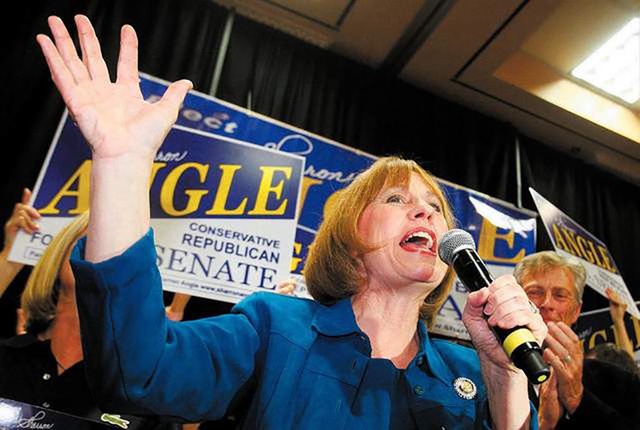Dennis Myers: Answering questions is an art in politics
Sharron Angle is back in Nevada politics after years of trying to achieve a leadership role in right-wing national politics.
In states like Colorado and Pennsylvania, she became an issue herself, to the extent that one campaign commercial contained the sentence, “Pennsylvania’s Pat Toomey – He’s no Joe Miller, Ken Buck or Sharron Angle.” In other words, instead of a leader, she often served as a bad example.
This year, Angle is running against northern U.S. House member Mark Amodei. It’s not easy to find any room to his right, though Angle will try, or to find anyone with deeper roots in the state. Amodei and his great-uncle Peter both served in the Nevada Assembly, Peter in 1939.
Angle is still living off the notoriety she earned in 2010 when Democratic U.S. Sen. Harry Reid’s campaign helped her win the Republican primary by running pre-primary attacks against a stronger GOP candidate, allowing Angle to squeeze through and allowing Reid to choose who he wanted to run against. The subsequent general election was raucous but Reid won an easy six percent win.
That campaign endures in pop culture. Recently I was watching the Aaron Sorkin series “Newsroom” on DVD. There was Angle complaining about her 2010 Senate race.
Angle: “We needed to have the press be our friend. We wanted them to ask the questions we wanted to answer.”
I remember her saying that. I also remember that she shut reporters out most of the time, refusing to be interviewed. I have always wondered who in her entourage advised her to do that. It was probably whoever charged her $12 million that year to raise $14 million for her campaign treasury.
Plenty of politicians know that the trick is not getting reporters to ask the right questions. Rather, they answer the questions they want, no matter what questions reporters ask.
All Angle needed to do was give reporters access to her and take their questions.
Here’s an example: In 1980 when Ted Kennedy was running for president, if he was asked about Iran, he talked about inflation. If he was asked about energy policy, he talked about inflation. If he was asked about the Soviets in Afghanistan, he talked about inflation. There was no need for him to hide from the press, as Angle did.
Former Nevada governor Richard Bryan had a way of describing this strategy. It went something like this: Reporters have the right to ask questions. Politicians have the right to answer them. Nowhere is it carved in stone that the answer has to be responsive to the question.
But then, Kennedy and Bryan were political pros.
Dennis Myers is an award-winning journalist who has reported on Nevada’s capital, government and politics for several decades. He has also served as Nevada’s chief deputy secretary of state.


















